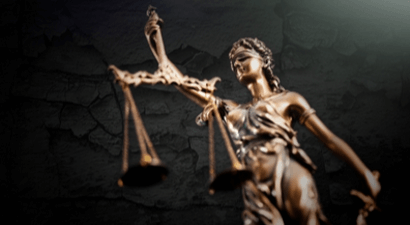LITIGATION SERIES WITH JENNIFER WOKER: SOME FOOD FOR THOUGHT
Following on from my initial article in this series in this piece I delve into additional factors to consider before embarking on any litigation process involving the recovery of money:
- Is there an agreement (oral or written) between the parties? If there is a written agreement, what are the terms? If it’s an oral agreement, how can you prove the terms? Who concluded the agreement, and what was agreed upon? Did anyone follow up in writing to confirm the terms? Can you identify any further information that may be useful when it comes to proving the terms of an oral agreement? Even something like a WhatsApp message or an email is useful.
- If the agreement is in writing, does it include a breach clause, and have you complied with the breach clause before attempting to recover what is owed to you by your debtor? Does the agreement need to be terminated before proceeding any further, or do you want to demand performance in terms of the agreement?
- Where is the debtor located? This will be the easiest way to inform which area court has jurisdiction to hear your matter.
- Do you have locus standi, in other words, the legal right to enforce or litigate the dispute? This is critically important when dealing with a debt owed to your company rather than to you in your personal capacity.
- Is the debtor a company or close corporation with an asset value and/or annual turnover of more than R1 million? This information is essential to decide whether the National Credit Act, 34 of 2005 (NCA) applies to the recovery of this debt.
- If the debtor is a small company or close corporation or you are dealing with an individual in their private capacity, do you need to send a section 129 Letter of Demand in accordance with S129 of the NCA?
- In so far as the facts of the matter are concerned, will there be disputes between the parties as to, amongst other things, the terms of the agreement, the reason for non-payment etc? If there will be disputes on the facts, you should proceed via summons.
- If there are no disputes on the facts and the debtor is simply not paying – saying things like: I’m sorry, I know we owe the money, we just can’t pay - you can probably proceed “on motion” (application proceedings), so via a Notice of Motion, supported by an affidavit.
- Is it possible to get the debtor to sign an “acknowledgement of debt” (“AOD”)? If the debtor fails to perform in terms of the AOD, you can proceed via “provisional sentence summons”. This is sometimes quicker than the normal available courses of action.
- If the debtor is a company or close corporation do you know if the debtor is in financial trouble? If so, should you consider liquidation proceedings?
- If you are considering liquidation proceedings, this is done “on motion” (as described above), and your attorney must serve the application papers via the Sheriff of the Court, on the South African Revenue Service (“SARS”), the Master of the High Court and the employees of the debtor company. You will also need to apply for what’s known as “security” from the Master’s office. A failure to comply with these requirements may render your liquidation application fatally flawed and you will likely have to recommence the process at possible additional expense.
- Further, if you are considering liquidation proceedings, are you a secured, preferred, or concurrent creditor? Secured and preferred creditors are those with security for their debts, i.e. SARS, the banks, landlords and the employees of the debtor. If you are a concurrent creditor, you may wish to consider alternative options before proceeding with liquidation proceedings.
- Is there a sense of urgency to the matter, which may allow you to launch urgent proceedings and curtail the usual time frames dictated by the Rules of Court in standard debt recovery matters. Commerical urgency is tricky to navigate, so care should be taken when considering launching urgent proceedings. Something that you may consider urgent, might not actually be considered urgent to a Court. There are specific considerations to take into account when deciding if a matter is urgent and an attorney’s advise should be sought in this regard.
These are some factors necessary to consider before you consult your attorney, so that you have as much information as possible at your disposable to save you both time and costs.
If you are based in Johannesburg and the surrounding areas and need assistance to, amongst other things, recover your debts, please contact our Partner in our Johannesburg office, Jennifer Woker, on 011 290 2540 / woker@wylie.co.za






